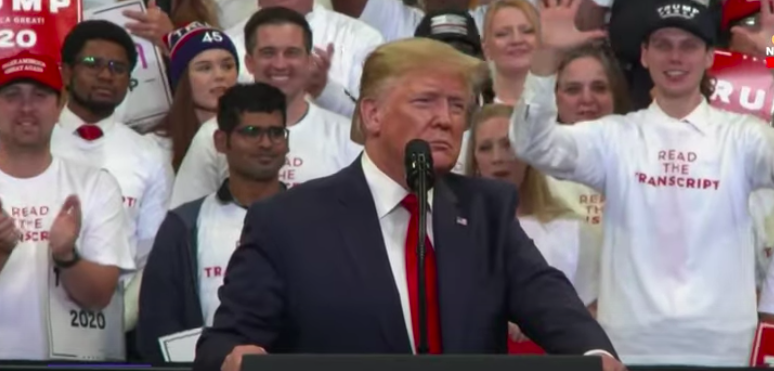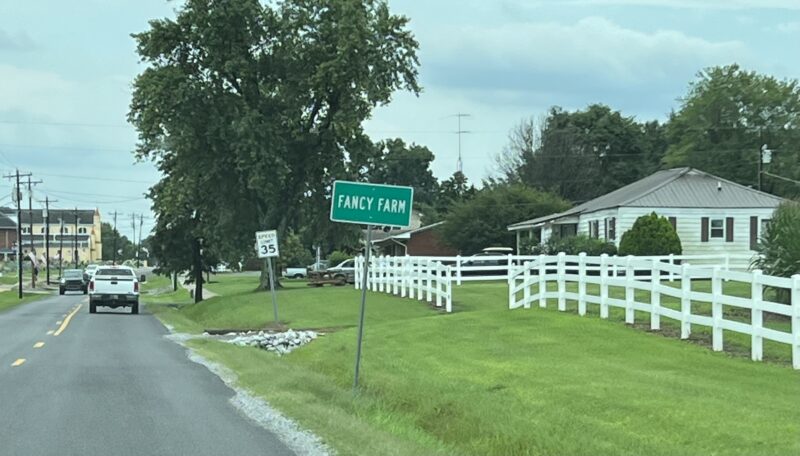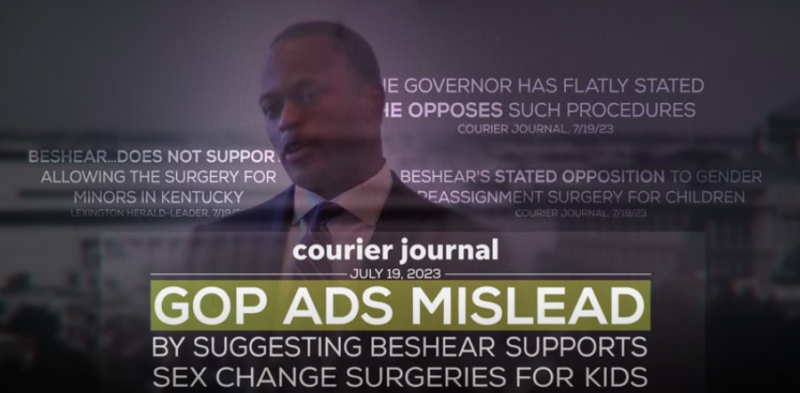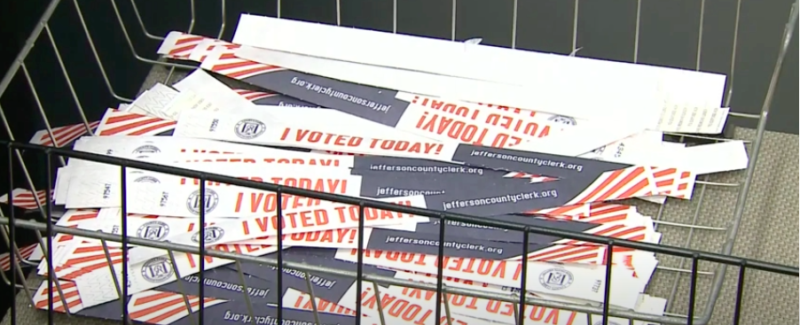This column is about Kentucky politics, but in today’s America, most politics are national, because Donald Trump has made them so.
President Biden said last week that Trump is a threat to our country, its democracy, and the rule of law. And he is. But in Kentucky, the state’s chief law-enforcement officer, Attorney General Daniel Cameron, is running for governor with Trump’s endorsement.
The newest candidate in the race is Kelly Craft, whom Trump made ambassador to Canada and then the United Nations. She announced her long-planned candidacy Wednesday by putting up a website; when she finally gets in front of reporters, she will be asked whether the 2020 presidential election was fairly decided.
Perhaps Craft will equivocate, as she did when a Canadian reporter asked which side of the climate-change debate she believed (“both sides”). Or, she could show more courage than Cameron and the other Republican hopefuls have shown, and publicly accept the truth that Trump lost fair and square.
That would be morally right. Trump’s lies about the election have undermined millions of Americans’ faith in the electoral process, and he inspired, encouraged and countenanced an effort to disrupt the peaceful transfer of power, which is the key to a working democracy. But he remains the cultural leader of the Republican Party because its elected leaders fear the voters who remain in his thrall. That’s bad for the party, and for the country.
Trump’s former White House communications director, Alyssa Farah Griffin, has a message for those Republicans: “You are the party of the big lie. You are the party of undermining American democracy.” She spoke on “Lies, Politics and Democracy,” a documentary that aired Tuesday night on PBS and KET and can be viewed online.
Biden had similar messages in his Sept. 1 speech at Independence Hall calling out Trump, but was too partisan. He didn’t clearly define his broader target, “MAGA Republicans,” other than to ascribe actions to them: “They refuse to accept the results of a free election. And they’re working . . . to give power to decide elections in America to partisans and cronies, empowering election deniers to undermine democracy itself.”
That’s true in many states, Arizona being the leading example. But then Biden expanded the definition of “MAGA Republicans” with references to the Democratic platform for the midterm election, saying they want “no right to choose, no right to privacy, no right to contraception, no right to marry who you love.”
That’s a lot of different things, on which a lot of Republicans think differently. About 30% of them have expressed reluctance about voting for Trump again, and a recent national poll showed threats to democracy were voters’ top concern.
Kentucky has been one of Trump’s strongest states, but its elected Republican leaders have largely avoided stumbling into the MAGA cesspool, surely taking cues from Senate Minority Leader Mitch McConnell, who avoids talking about Trump but clearly despises him.
Kentucky Republicans’ point man on elections, Secretary of State Michael Adams, has set a good example by speaking out against state Sen. Adrienne Southworth, R-Lawrenceburg, and others who espouse unfounded conspiracy theories about the way Kentucky elections are run.
Adams has an opponent, Allen Maricle of Lebanon Junction, a former state representative who is a running buddy of Eric Deters of Walton, the gubernatorial candidate who seems most aligned with Trump – even more so than Cameron, who seems intent on milking Trump’s endorsement without carrying any of his baggage.
But just how valuable will that endorsement be? Between now and the May 16 primary, Trump could be indicted on serious charges, and by Nov. 7, 2023, he could be so discredited that Beshear could use him as a foil, at least to spur Democratic turnout.
Sure, that may be wishful thinking. For now, in the Republican primary, no major candidate seems likely to antagonize the authoritarian ex-president, who is better at defeating people who anger him than electing those who please him.
Which brings us to Matt Bevin, who was governor when Trump endorsed him but had so much baggage that he lost narrowly to Beshear while every other statewide Republican campaign won. He may run again, and Craft’s entry makes that more likely because a crowded primary could be winnable by a small plurality.
Like Trump, Bevin is a wealthy, pugnacious, outspoken breaker of norms, who is adverse to the news media and any other Republican who gets in his way. His money and name recognition could make him, not Deters, the MAGA candidate.
But in a crowded primary, there could also be a path to victory for a candidate who embraces the truth about the 2020 election, or at least says they’ve seen no evidence it was stolen. That is the point where public morals could intersect with political strategy.
Al Cross (Twitter @ruralj) is a professor in the University of Kentucky School of Journalism and Media and director of its Institute for Rural Journalism and Community Issues. His opinions are his own, not UK’s. He was the longest-serving political writer for the Louisville Courier Journal (1989-2004) and national president of the Society of Professional Journalists in 2001-02. He joined the Kentucky Journalism Hall of Fame in 2010.
NKyTribune is the anchor home for Al Cross’ column.



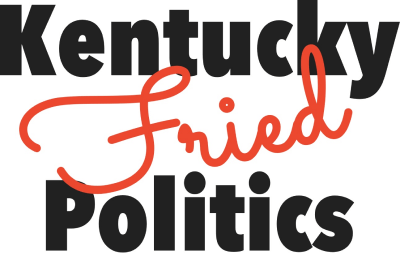
 Login
Login  Must include at least 8 charaters
Must include at least 8 charaters